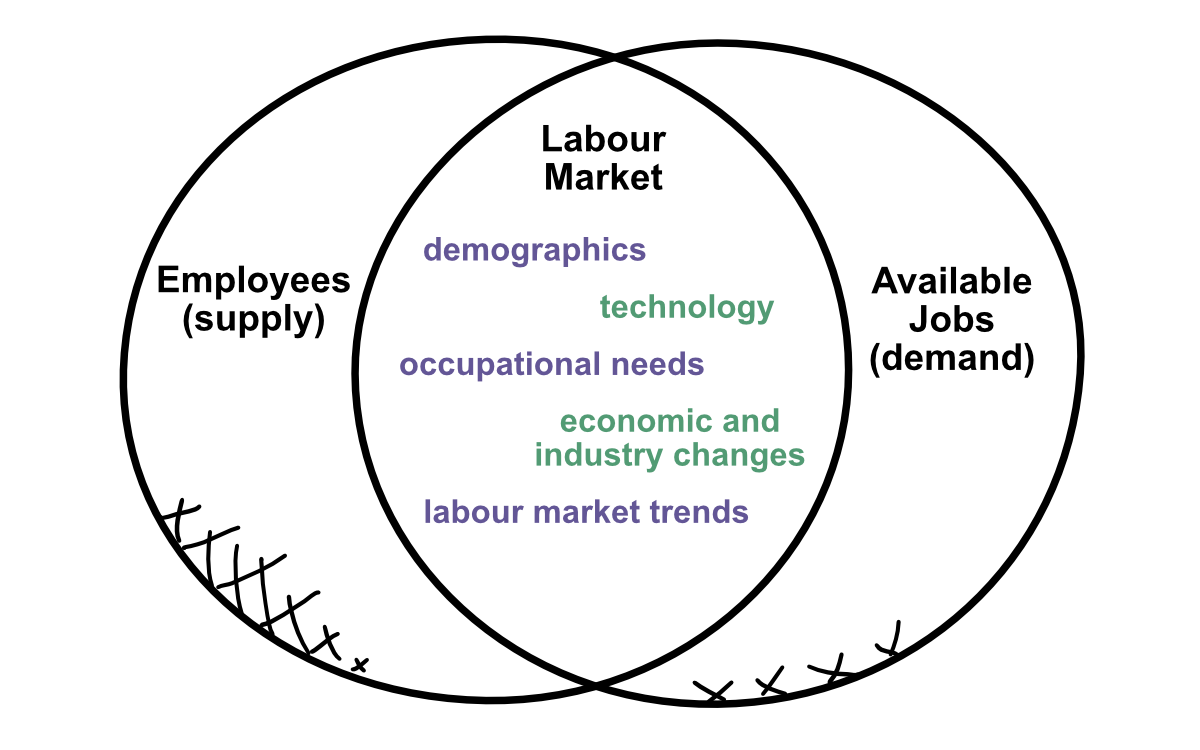Activity: External Influences
1. Labour Market Information (LMI)
Career management involves career planning. An aspect of career planning is gathering information about the labour market. The labour market is the intersection of supply (employees) and demand (employers with jobs that need to be filled). There are factors such as demographics, technology, occupational needs, economic and industry changes, and labour market trends that influence the labour market (ALIS, 2001-2021).

An example of a demographic factor influencing the labour market could resemble a scenario like this,
- as the aging population increases,
- the need for healthcare services increases,
- healthcare products and services increases, and
- the demand for workers in this field increases,
Or
- as the world slowly adopts solar energy,
- the need for fossil fuels decrease,
- demand for oil and gas equipment and services decrease, and
- the demand for workers in this field decreases.
Labour market information (LMI) is:
comprised of knowledge, facts, data and other relevant institutional information which pertains to the supply and demand of labour. In other words, labour market information is any information that could support the decisions Canadians make in the world of work and in terms of learning, education and training (Labour Market Information Council, 2019)
This is a short video clip (0:58) on LMiC's WorkWords website that provides a definition of LMI (Labour Market Information Council, 2020).
“Labour market intelligence [are] interpretations of labour market information, including predictions about future trends” (Hambly, Bomford, 2008, p.164).